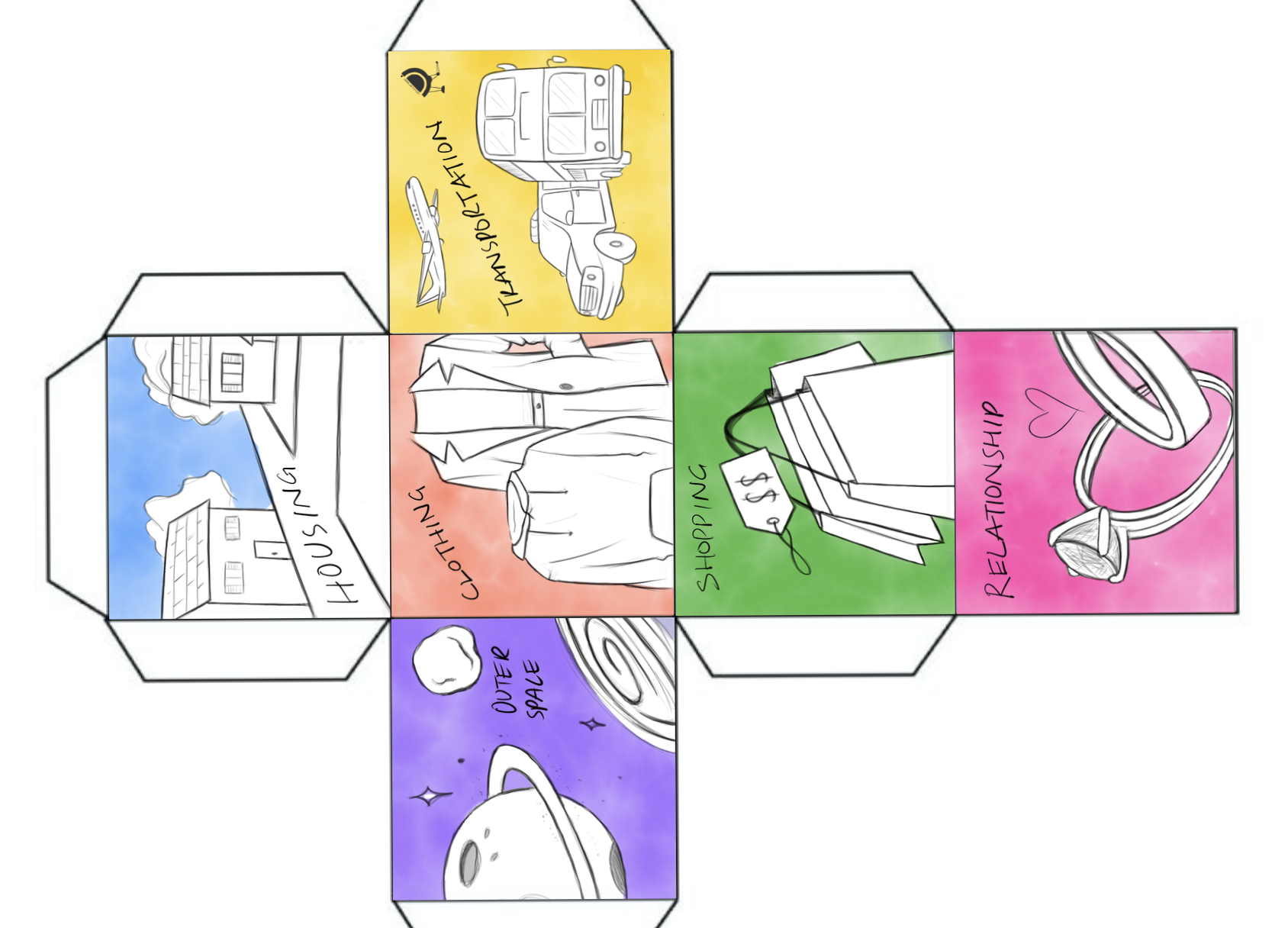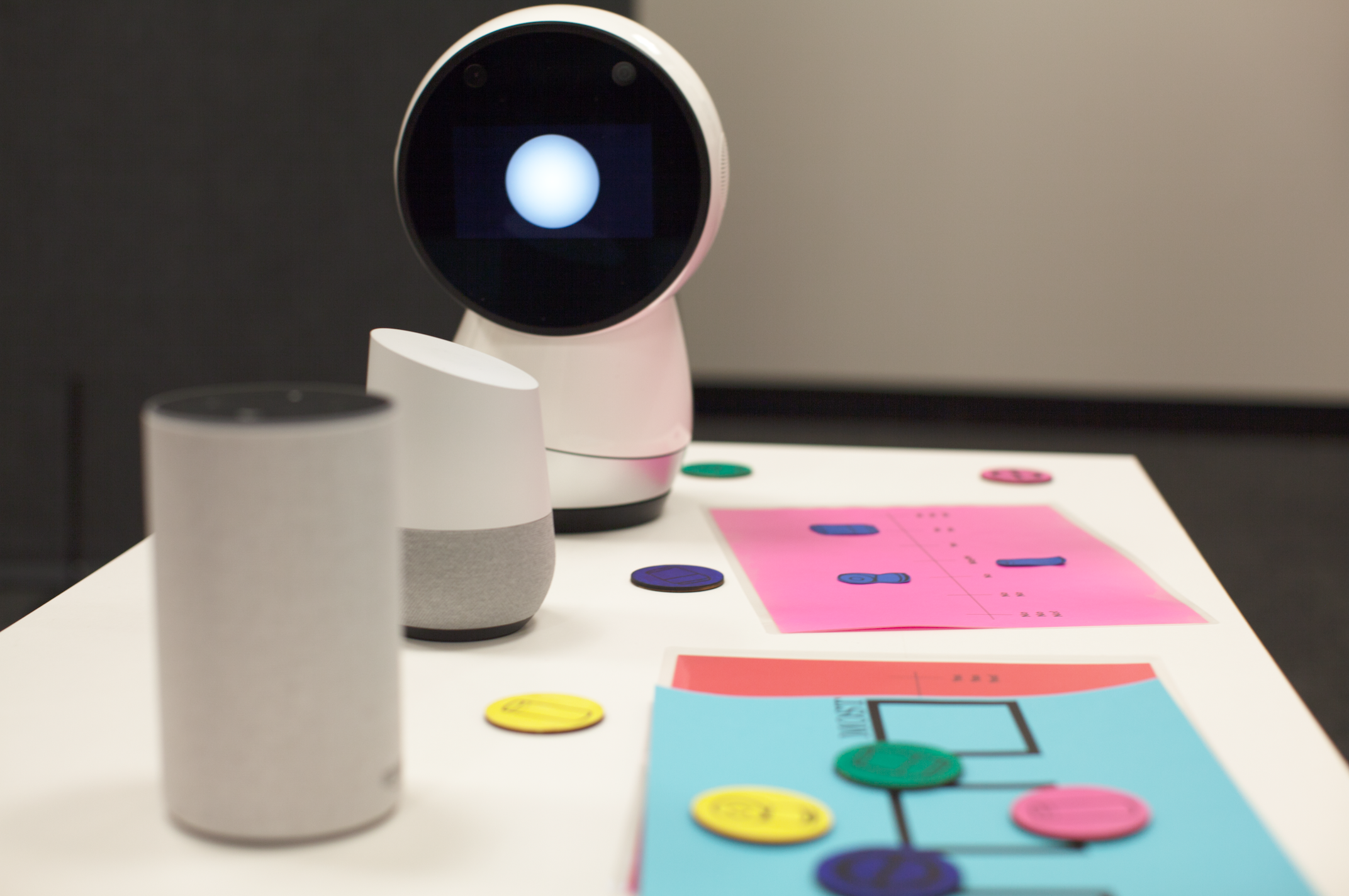AGENT PERSONALITY + ROLE co-DESIGN WORKSHOPS
Collaborators: Mikaela Thompson, Ramani Satishkumar, Lucy Gunter, Daniella DiPaola, Cynthia Breazeal
This project explores how employees would design and implement autonomous agents in industry contexts. Looking at various form factors, including chatbots and robots, employees participated in a series of co-design workshops designing autonomous agents’ roles and personalities. Results have revealed personality and relational designs of agents in industry contexts and demonstrated how autonomy and power dynamics are incorporated into employees’ agent designs, calling for an holistic understanding of power in human-robot interactions.
DESIGN FOR HRI
Collaborators: Grace Pan, Aleena Qaiser, Guan-Ling Chen, Patrícia Alves-Oliveira
By envisioning a future for the Design for HRI, the field of human-robot interaction (HRI) can fully realize the potential of design, charting out new directions for the field, and helping ground the field’s meaning of Design for HRI. This project involves the creation of four design research visioning techniques (drawing on metaphors, design fictions, backcasting, and zine-making) that support developing strategic visioning around Design for HRI with the HRI community. The resulting Design for HRI visioning toolkit was deployed at the HRI Design Retreat.
EQUITABLE TECHNOLOGY DESIGN WORKSHOPS
Collaborators: Ramani Satishkumar, Cynthia Breazeal
Design workshops grounded in the HRI Equitable Design framework were conducted with industry members, academic labs, and policy thinkers focused on robotics. The design workshops incorporated design methods, including design fictions and structured ideation through a design justice and policy toolkit, to support participants in centering equitable design in their technology design and implementation processes.
ROBOT POLICY DESIGN toolkit
Collaborators: Daniella DiPaola, Rylie Spiegel, Zandra Feland, Zeynep Yalçin, Cynthia Breazeal
With many technologies designed with artificial intelligence (AI), there is an increased need for policy around these devices surrounding dimensions including autonomy, bias, social persuasion, privacy, emotional deception, and transparency. The Robot Policy Design Toolkit is designed to allow any generation to design and consider how we can develop policy for social robot technologies around nine ethic and policy topics.
Co-designing social robots
Collaborators: Christina Harrington, Hae Won Park, Cynthia Breazeal
To ensure successful and sustained adoption of technology, participatory and co-design processes are essential in social robot development to incorporate older adults into the design process as collaborators. This research focused on empowering older adults as partners in co-design research processes designing social robots. Over a year-long co-design project, we partnered with 28 older adults to understand how social robots should be designed, specifically exploring the areas of medical adherence, emotional wellness, social connection, financial management, memory, body signal monitoring, and exercise. This methodology demonstrates how users can and should be involved in designing artificial intelligence (AI) systems that impact their spaces and can be expanded and applied to other demographics and focus areas of AI, such as public health and education.
DESIGN JUSTICE PROJECT AT MIT
Collaborators: Madhurima Das, Tomás Estrada, Shannon Clancy, Sara Atwood, Catherine D’Ignazio, Maria Yang, Cynthia Breazeal, Rachel Waggoner, Jessica Meza, Raechel Walker, Jennifer Zhang, Jana I Saadi, Olivia Dias, Gillian J Roeder, Barbara Adjei, Paige Lighthammer, Kimberley Kimura, Shelly Ben-David, Aditi Verma
This project aims to develop methods and investigative tools for understanding and further embedding design justice into classrooms, in academia broadly, and in design processes in educational institutions and corporations. Our work analyzes how designers and design educators currently incorporate design justice into design pedagogy, suggesting future techniques to increase design justice’s presence in the classroom, and designing new methods and tools to support design justice in design pedagogy. For more information on the research, you can read our blog post reflecting on the project.
ENGAGEMENT WITH VOICE USER INTERFACES
Collaborators: Jenny Fu, Vasiliki Zygouras, Hae Won Park, Cynthia Breazeal
When interacting with voice-user interfaces (VUIs), such as Amazon Echo and Google Home, users attribute agency and personality traits to these AI agents due to the technology’s social attributes. These factors affect user experience quality and overall engagement, which, when considering first experiences, can impact continuous usage and engagement with VUI technology. Our work examined users’ first impressions and interactions with VUI agents, such as Google Home, Amazon Echo, and Jibo, with varying brands and modalities. We investigated how social embodiment, interpersonal movement, and branding influence users' perceptions of VUIs and their behaviors when interacting with VUIs.






